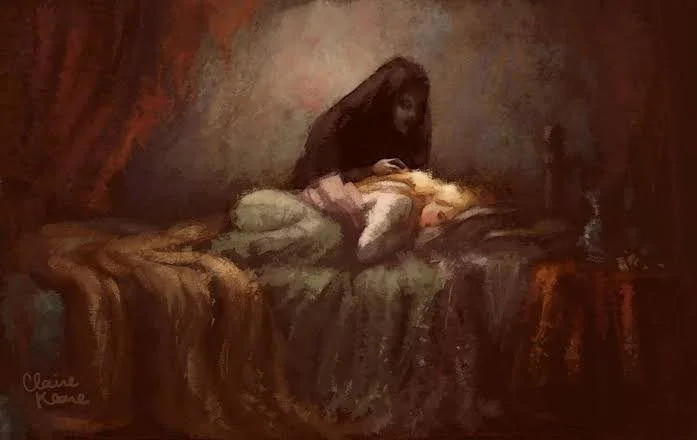What women talk about amongst themselves
With all due respect to these gentlemen, their mothers —
‘From control to narcissistic abuse:
(...) Narcissistic abuse is the projection of the parent onto the child, whose gifts are exploited not to develop her own resources but to satisfy the parent's need for gratification. (...) It is an abuse of identity, the little girl being put in a place that is not hers and, correlatively, dispossessed of her own identity by the very person responsible for helping her to grow. (...)
The mother's over-investment is accompanied by a lack of real love, which the child transforms into a lack of self-esteem, an insatiable demand for recognition and an unfulfilled need for love. The ‘gifted’ child never ceases to multiply her prowess in order to merit, through her gifts, a love that is always unsatisfying because never directed towards herself, for herself. (...) ¹
[Diary, Oct. 2018:] ‘I can't go on. It's terrifying. It's as if this book were an oracle of my life. It's all written down: the constant pain, the bulimia, the desire to hurt myself, to starve myself to death... the wish to disappear. The worst things I can't even confess to myself. (...) I'm scared. Dr M.’s office is closed and I have nowhere to go. The only thing I know: I can't go home.’
I remember. It was this book that started it all. The paranoia, the escape, the wandering from one end of the city to the other... It was the book. In my ghostly delusions, I ended up in the library and found myself face to face with this book — Mother-Daughter: A Relationship of Three. Out of curiosity, I opened it. I thought it wouldn't hurt to have a look at it. Well I was wrong.
The child prodigy is torn between smallness and greatness, self-hatred and self-love, the interiority of being and the exteriority of doing, the darkness of secret suffering and the light of a glory offered in vain. Such is indeed the fate of the little girl when her mother, oblivious to her own identity as a woman, has entrusted her with the task of realizing her aspirations in her place.’ ²
It was as if the world had slipped away from under my feet. I had the feeling that someone was observing me. ‘This need for love can never be fulfilled because the signs of solicitude are never really addressed to the child.’ It was joke, wasn’t it? Someone had let the damn book there, just to make fun of me.
‘[Maria, from the movie Bellissima] would undoubtedly have become a brilliant young woman [if she had had any special gift] but nevertheless, always hungry for narcissistic gratification, alternating periods of excitement and depression, overactivity and inertia, always eager to please but generally unloved, probably bulimic as well as concerned about her figure, emotionally immature as much as sexually savvy.’ ³
‘From there, something clicked inside my brain. I saw the truth. I was in the eye of the storm, suddenly very serene because everything appeared to me as a powerful revelation, with only one possible outcome: escape or death.’
Think about Rapunzel, who has never touched reality, not even close. Lacking knowledge of what it is made of, she has imagined a world. And in this world, all the characters in the story want to hurt her. And she is right, in a way, because without a voice of her own, everyone is free to put words in her mouth that she never wanted. But the liberating question is not: who is on my side, really? And who has been pretending all this time?
But rather: who has more to gain if Rapunzel stays in her tower?
MARIA (to her mother): You know what would actually help me? If you’d loved me less. —
¹, ², ³ : ‘When women get together(...), what do they talk about? With all due respect to these gentlemen, their mothers. So argue Caroline Eliache and Nathalie Heinich in their book on mother-daughter relationships.’ — C. Eliache , N. Heinich (2010). Mère-fille: une relation à trois. Ed. Albin Michel —
The PDF version here — Print it, save it, share it.
♡


